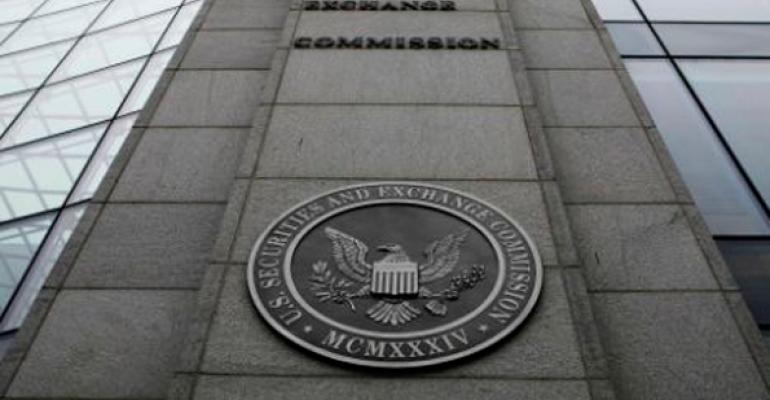The Securities and Exchange Commission accused former Ameriprise dual registrant Richard Hoffman with soliciting investments from clients in a purported crypto-trading Ponzi scheme run by two 20-something fraudsters, one of whom allegedly has ties to the Colombo crime family, according to reports. The commission said Hoffman failed to disclose the fraudulent firm offered him up to $1.5 million in the form of low-interest loans in return for bringing in the investors.
According to the SEC’s complaint filed in Arizona federal court, starting in March 2019, Zima Global Ventures offered as much as $25 million in “membership units” to purportedly trade in crypto and other digital assets through its affiliated company Zima Digital Assets.
Zima was co-founded by Zach Walter and John Michael Caruso, the latter of whom called himself the “Michael Jordan of algorithmic cryptocurrency trading” and gave himself the moniker “Kryp+0 K!ng,” according to reporting from the Phoenix Business Journal. The duo pledged investors would see huge profits from their forays into crypto day trading.
To help find investors, Zima agreed to extend low-interest, unsecured loans to Hoffman, who was based in Peoria, Ariz., and had been with Ameriprise since 2016.
Over the course of 2019, Hoffman convinced eight clients to invest more than $640,000 into Zima’s offer, with Hoffman receiving at least $170,000 from Zima in the loans, according to the commission. Hoffman would solicit clients via emails, texts and phone calls, pushing investments in Zima’s securities.
“When recommending the Membership Units to clients, Hoffman failed to disclose the Lending Agreement and, over time, the fact that he owed Zima tens of thousands of dollars,” the complaint read. “Hoffman also did not disclose the resulting conflicts of interest created by the Lending Agreement.”
Zima was a big business for its founders, who made prominent display of their supposed wealth on social media and allegedly convinced athletes and celebrities to invest with them. But their conduct attracted attention from federal investigators, according to the Phoenix New Times; on Jan. 30, 2020, U.S. Secret Service agents arrested the duo, who were charged by the DOJ with conspiracy to commit wire fraud and money laundering. Caruso, born in 1991, is the son of mobster John Caruso Sr., according to the New Times' report, and had already served prison time on charges of helping his father in an extortion scheme and falsifying loan documents.
Eventually, investigators discovered more than 100 investors who lost more than $7.5 million. The duo allegedly spent the money on personal expenses, including private jets, million-dollar mansions and luxury cars, according to the New Times. Investigators say Zima was a Ponzi scheme; they found no evidence of any actual crypto purchases or transactions on crypto exchanges. The money was used to both pay returns to previous investors and into the duo's pockets.
But in November of 2019, the scheme was still going strong, and Hoffman continued to solicit clients, according to the commission. The Ameriprise advisor sent clients a text revealing that Zima offered to guarantee 18.5% in returns for the first year post investment, according to the SEC.
In August, one client asked Hoffman if he was receiving any compensation from Zima for his recommendations. Hoffman allegedly said he could only receive a 1% commission on the invested assets as an Ameriprise advisor. The client eventually invested more than $350,000. According to the commission, Ameriprise blocked Hoffman from making the recommendations altogether.
Hoffman hid the scheme from his employer by using a non-Ameriprise email account and submitting false information to the firm about his outside business activities and the reasons for wire transfers out of his clients’ accounts.
At one point, Hoffman discovered that Ameriprise planned to contact two of his clients to ask about those suspected wire transfers. He convinced the clients not to tell the firm that he was the one who solicited the business, according to the commission.
By the time Salter and Caruso were arrested in 2020, Hoffman’s clients had more than $610,000 in unreturned principal, according to the SEC. Ameriprise fired Hoffman in May of that year, and FINRA barred him from the industry that same month for failing to “provide documents and information” requested by the regulator, according to his BrokerCheck profile.
Hoffman had more than two decades in the industry, beginning with multiyear stints at Morgan Stanley and Merrill Lynch before joining Ameriprise in 2016, according to BrokerCheck. That same year, when Hoffman was working at Wedbush Securities, a customer alleged he’d churned her account and invested her funds in risky securities and lied about the losses she’d suffered; Hoffman and Wedbush eventually settled for $329,500.
Hoffman did not admit or deny the SEC’s accusations but agreed to a judgment that includes a permanent injunction. The commission’s also seeking the return on the ill-gotten gains, prejudgment interest and additional civil penalties.




